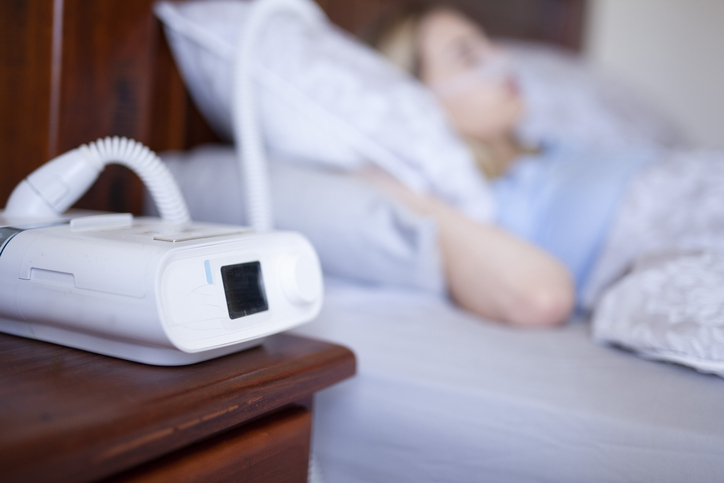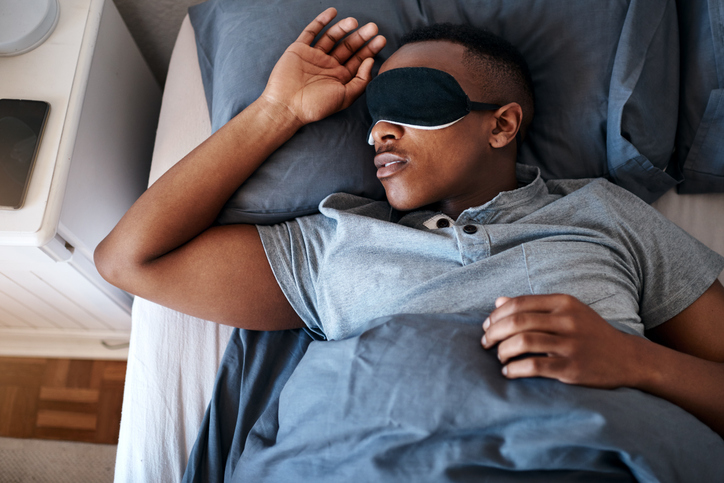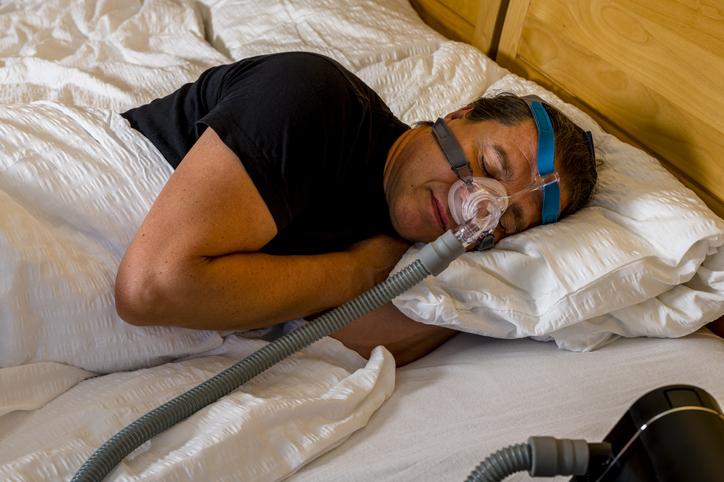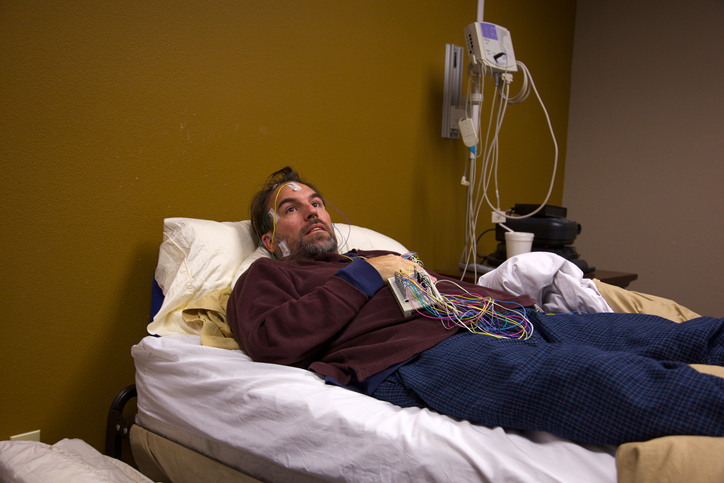Living with Chronic Pain
The Relationship Between Chronic Opioid Treatment and Sleep Apnea

A well-established link exists between chronic pain and sleep issues: pain often disturbs sleep patterns, and lack of quality sleep often increases pain. The use of opioid medications to treat chronic pain may cause yet another sleep issue — sleep apnea.
What is sleep apnea?
Sleep apnea is a sleep disorder in which respiration (breathing) repeatedly ceases for brief periods during sleep. When the brain realizes the body is not receiving enough oxygen, waking occurs, preventing restful sleep. Common risk factors for developing sleep apnea include obesity, larger than normal neck circumference, and certain medical conditions that affect the central nervous system.
Chronic opioid treatment and sleep apnea
The use of opioid medications may also cause sleep apnea. This is especially true with long-term opioid use for the treatment of chronic pain.
Opioid medications work on receptors in the brain that control both pain and respiration. They can slow respiratory rates, decrease the amount of air taken into the lungs, and affect respiratory patterns. These effects are especially pronounced during sleep, leading to the development of sleep apnea. Sleep apnea caused by opioid medications may even cause lower oxygen saturation levels at night than sleep apnea from other causes.
Methadone is an example of an opioid that increases the risk of developing sleep apnea. In general, high doses of opiates and the use of opiates with other medications, such as benzodiazepines, also increase the risk of developing the condition.
Not only can sleep apnea prevent restful sleep, causing fatigue and increased pain, but it can also lead to serious health complications, such as stroke, heart failure, or heart attack. For these reasons, it is important to discuss the risks and benefits of chronic opioid treatment with a physician. Individuals with other pre-existing risk factors for developing sleep apnea should be particularly aware of chronic opioid treatment and the risk of developing the condition.

















